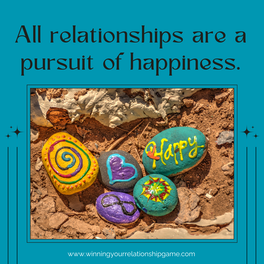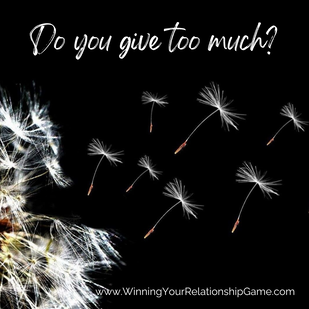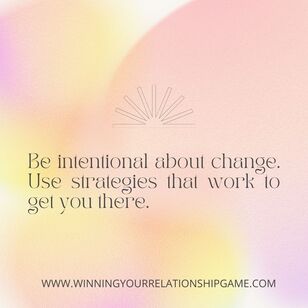|
What are the benefits of relationship counseling?
There are a lot of good reasons you and your partner might consider counseling. If both partners are willing to engage fully, you might leave therapy with an unshakeable bond. What are some of those reasons? You’ll learn to communicate effectively. Different people have different opinions. Conflict is assured. The goal of communication is to ensure that you are heard by the person you’re talking to. That means you both play a part. Learning how to deliver and receive messages in a way that reduces conflict is a worthwhile endeavor. Negotiation is one of the best skills to handle problems, and if you can learn that, you’re going to be in good shape. You’ll strengthen your foundation. If relationships are based on attachment (and I believe they are), when our attachment bond becomes disrupted, we begin to seek reconnection. This is where a lot of our discontent comes from. Learning to reassure each other of a strong bond will strengthen the foundation of your relationship and decrease the likelihood of someone getting anxious and creating conflict. You’ll boost your confidence. Learning more about yourself and your partner will allow you to navigate potential perils. Once you see that you can work together, you’ll have the confidence to move on to bigger issues. In addition, counseling can help your relationship even if your partner won’t go with you. Learning dysfunctional patterns and finding more beneficial ways to handle things will impact your relationship. It can start with you, and the ripples will wash over the whole family. Good relationships are associated with greater happiness, a longer lifespan, better financial stability, better health….It’s worth it to work on your relationship in so many ways. Allison xoxo
Comments
Do you sometimes feel that your partner doesn't meet your expectations? It can be very frustrating to have these sorts of emotions. But we know we cannot coerce another person into doing things or doing things the way we want them. If your partner isn’t meeting your expectations, that’s not the end of the relationship, unless this expectation is non-negotiable.
Often, we expect others to give us what we don’t give ourselves. When we’re weak in an area, we often look to the person closest to us. When they let us down, it makes us feel unseen and insecure. Almost any problem you're having in a relationship is really a problem with learning to love yourself. It is necessary to love yourself. It's just as important as the air you breathe. If you have an area of weakness, you will expect it from your partner. You have to recognize this need and find ways to fill that area of lack. Many philosophers theorize that relationships are our most fertile learning ground. Frictions that arise in your relationship will help you see more clearly where these expectations are and then point you to how to ease them yourself. An example of this might be me getting angry with my partner because housework keeps me from going to the gym. I expect him to help me and facilitate going. If he doesn’t, does that mean I keep working and don't go to the gym? No. If it’s important to me, I need to put a pin in the housework and go to the gym. Can I ask for this need to be met? Of course! But my gym attendance is up to me, not him. Expectations not met lead us to feel insecure and unsafe. Fear makes us mean, so that will show in our interactions with our partner. This might make us feel better, but it’s not likely to get us what we want or need. All of a sudden, friction with your partner transforms into a measure of your self-love. Your feelings about yourself aren’t dependent on whether your partner is happy with you or not. You aren’t let down when your partner disappoints you. You see it as an area for your attention vs. a topic of war. Likewise, your partner’s complaints tell you something about their level of self-love. Is there a way to facilitate their searching for their own way to meet their needs? I love it when my partner agrees to meet a need. But if he doesn’t, getting resentful just adds to the problem. If you understand you don’t need someone else to meet your needs, it makes it more clear when you shouldn’t stay in a relationship. If we’re always trying to earn our partner’s admiration and approval, we’ll always take the blame for things that go wrong. No matter where you are in your relationship, first work on loving yourself better. Other problems often resolve themselves when you do! Fighting is an inevitable part of a relationship. Unless you agree on all things…..you are going to argue. Topics might include money, going out, time for hobbies, etc. Negotiating how you will handle things as a couple can help keep fights from escalating too far.
Talk about the big issues that derail relationships and decide how you want to handle them. Agreement on solutions decreases how charged a situation is before it even starts. The reason companies have to have safety training is so you know what to do when a crisis occurs. Crises will occur in our relationships too! One of my best pieces of advice is to set up a “date night” with your partner and keep it. I say plan once a week because some weeks you won’t be able to do it. If you only plan for once a month and you miss it, it’s too long in between. Date night should be a habit that sticks throughout your relationship. Children shouldn’t derail it. Holidays shouldn’t derail it. It should stay on track. Furthermore, I suggest a daily "date.” Find a time that works for you both. It might be over morning coffee. It might be over bedtime tea. It might be an after dinner glass of wine. Again, plan for every day because it won’t always work! This date should be about 15 minutes, so anything that needs to be discussed can be. How about rules around disagreements? How do each of you respond to conflict? Does one of you need to calm down? Does one of you fear not hashing it out completely? Knowing your style and honoring your partner’s will help arguments defuse more easily. If I need to calm down before I talk something through, you following me and continuing to push to engage is not going to help the situation. The key here is to have a rule about returning to the topic. Money is a big issue in many failed relationships. Decide what your goals as a couple are and how much you’re willing to dedicate to those goals. Anything that falls outside the guidelines you’ve agreed to is out of bounds. One of you is likely less impulsive than the other. How will you resolve it if you disagree? Make a rule. Everyone needs to have a little fun with money, so make sure that's also accounted for. Do not abdicate responsibility for money to your partner. Even if one person takes charge of paying the bills, you both need to be aware of the status of your finances. Often, couples aren’t exactly matched in their desire for socialization. Again, this is a place for compromise. What’s your rule about leaving a social situation together? The person who didn’t want to go in the first place may be the one to call it done, even if the social butterfly still wants to stay. Some days, that butterfly might have to stay home instead to make it fair for the other. A mismatch of sexual desire is another point on which partners often differ. Do yourself a favor and read “Come as You Are” to understand the biology of desire. If there is trauma in your background, work on it with a therapist. The worst thing you can do is take refusal of sex personally and make it a source of conflict. What is your agreement about extended family? If your mother breaks boundaries (BTW, what are the boundaries?) what action is called for? Generally, a person should deal with their own parents, but a couple needs to be on the same page no matter what. Don’t approach extended family until you are. Take time for yourself. We all need me time. How will you handle engaging with friends? How will you participate in your hobbies? How will you manage your self-care? These practices keep us restored and should be accessible and available to both partners. What other areas do you and your partner need rules around? When you’re not angry, discuss it and make some rules. Just knowing how you will handle it will diffuse some of the emotion. Then stick to that rule! Agreed? Allison xo  If you’re lucky enough to count your partner as your best friend, you’re in luck. Friendship can help you weather the hard times that every relationship has. Many couples who value their friendship seem to have an easier time handling their struggles. Often, these partners say their love, sexual pleasure, and commitment to each other have grown over time. So why does being friends as well as lovers make a relationship so much better? Relationships work best when both people back and affirm each other, like friends do! Ask yourself, Do you treat your partner as a friend? What are the rules of behavior you practice with your friends? Are they the same as the rules for your partner? When a friend lets you down, how do you handle it? Is it the same when your partner lets you down? Often, we can see our friends as individuals with free will to make their own choices, no matter what we think. It’s often trickier with our partners. We often want our partner to think as we think and decide as we decide, often spending more time in judgment with our partner than we would with a friend. It could be a useful exercise to draft up some rules of friendship. If your partner is willing, they can too! I started a list below. Feel free to swipe, change, or add! *We help each other reach our goals. *We are compassionately honest with each other. *We honor each other’s limitations and don’t push each other to overextend. *We look out for each other’s well being. *We talk to each other frequently and intimately. *We don’t make demands of each other. *When we have conflict, we make it a priority to understand and not be hurtful. What other rules of friendship would you add to this list? I’d love to hear your thoughts. In friendship, Allison  You have a relationship with everyone you know: your partner, children, parents, siblings, co-workers, and friends. Even people you don’t like are in a relationship with you! Every relationship fills a need for you: financial, social, emotional, etc. If needs are not met, a relationship fails. Our modern connectedness empowers us to rapidly shift between relationships. For instance, I can speak to my boss and, in the next minute, speak to my partner. Both of these relationships serve different needs for me and for the others involved. Juggling our attitudes and manners of relating in such quick shifts is a challenge. If I interact with my boss and my husband in the same way, I’m not honoring the unspoken contracts about how we show up for each other. Maybe some people exist without attachments, but I don’t know any of them! According to research, the caliber of our relationships has a significant impact on the quality of our lives. As much as we might dispute the following statement, examination will likely show you it’s true. All relationships are pursuits of happiness. Think about it. We make friends, move in together, have children, etc., ultimately because we think it will make us happier. Many times, happiness doesn’t seem to be the outcome. If you find yourself in this situation, it may seem logical to change your relationships. This may be the time you cut off family members or separate from your partner. (And sometimes this is the best course of action.) But it’s our expectations of another person providing that happiness that create most of our discontent. Instead of looking at ourselves as the fountain of happiness, we pin that responsibility on others. This approach stunts our own self-growth. Imago Therapy looks at relationships as a unique vehicle for healing and growth. All healing occurs within the context of relationships, yet when we become uncomfortable, we’re all too used to blaming our partner instead of examining ourselves. When we start throwing blame around, it often turns into a contest. This type of contest squeezes the love out of the relationship. Ultimately, conflict in relationships is a golden opportunity to self-examine the things that trouble us deeply, annoy us, and set us off. Strong reactions are seldom about what our partner is doing but more about something within us that needs to be examined and healed. The job of a relationship is to help you grow. Don’t shortchange yourself or your partner by holding back on your own growth. Looking inward, Allison  If you’re searching for ways to improve your relationship, you’re probably a generous, caring person who’s willing to go the extra mile. You probably offer help to everyone around you, even when they haven’t asked. Others may really depend on you any time they need support. Have you ever wondered if you give too much of yourself? Friends, overgiving leads to resentment. Resentment is a sure sign that your boundaries have been violated. Did you know that you’re responsible for maintaining those boundaries? Are any of these situations familiar? Accepting an extra assignment at work, although you're already overwhelmed,? Giving up something you really want in lieu of helping a friend or doing what they want? Not telling your partner you don’t like what they are doing so you don’t hurt their feelings? Consistently doing “more than your share” at home without bringing it up? Saying yes to sex even though you don’t want to? Saying yes to plans but then coming up with an excuse to not go? Any (or all) of these mean you need to strengthen your boundaries. It’s not easy to say no, but happiness in our relationships depends on being able to set appropriate limits. If you need some good reasons to set boundaries, here’s 5 for you!
As I said, boundary violations create resentment, and that is a killer for relationships. Maintaining a good space for yourself eliminates this. 2. You are able to give MORE. Although we often violate our boundaries because we feel we HAVE to give more, it’s often at our own expense. I say, when you give, give with love in your heart, because otherwise you’re hurting yourself. When you’re in a great space with intact boundaries, you feel great about giving. 3. You teach others how to treat you. Every time we allow our boundaries to be crossed, we teach others that we don’t stand firm. When we are confident about what’s not acceptable and we convey this, others learn not to push. This helps future interactions be more healthy for you. 4. You'll be happier. Believe it or not, creating a safe space for ourselves frees us up to be more present and available for what we enjoy. 5. You're honoring yourself. Adopting the mindset that boundaries are, in fact, self-care helps you know you are respecting yourself. Listening to your wants, needs, and desires and setting limits around them is the ultimate act of self-esteem. So, where is it that you’re overgiving? Is there a step you can take right now to set or strengthen your boundaries? Within limits, Allison  Valentine's Day is around the corner so a lot of us are thinking of gifts! All of us aren’t great gift-givers! And let’s face it, some guys are just hard to buy things for. My husband and I don’t really give gifts anymore, but it’s always nice to get something thoughtful or useful. All men are different, so some of these might not fit for your situation, but here are some ideas if you’re having a hard time.
If your guy has a wish list on Amazon or elsewhere, check it out. Gifts like a new grill, television, or garage storage benefit the whole family, making them worth a higher price tag. Bonus! The family will spend time with him, extracting more value from this gift. 2.Something based on his hobby. If your guy is into cycling, plan a trip to an area with a challenging trail. If he’s into baseball, where can you find tickets to a game he’d like to go to? If he’s had an interest in woodworking, find a book to inspire him and help him improve. You get the idea. With hobbies, there’s opportunities to find accessories, tools, items (like t-shirts) representing it, classes or other educational material, etc. 3. Something that solves a problem. There’s a saying that every complaint is an unmet need! Listen to what your guy complains about. Does he hate to be cold? Get him a heated towel rack. Does he complain that he can’t find matching socks? You know what to do. Does he hate not being able to find his tools? Get him an organizer. When your partner gets a gift that solves their problem, it tells them you care about their peace. 4. Something to enhance your connection. Get a sexy game and play it together. Get a couple’s workbook you can use to know each other better. Make a list—a long list—of things you love about him and give it to him. One of the best things I ever did for my husband was a gratitude list for the month of November. Every day, I wrote down something from that day that made me thankful and I gave it to him at the end of the month. He was very touched and said I should make all my patients do it! If your guy likes words of affirmation, this is the gift for him! Any other thoughts on great gift ideas? #1
Stop letting other’s opinions dictate your course. You are the only one who can know and do what’s best for you. What others think is not as important as what you think of yourself. Don’t let yourself down! #2 Forgive yourself for the past. Your past does not equal your future. What matters is what you do from this point on. If you hadn’t had your past, you wouldn’t be who you are today. #3 Be decisive. Don’t get stuck in analysis paralysis. Do your research, and then make a decision, whatever the situation. #4 Make goals. Find something important to you which you feel is worthwhile. #5 Take action towards your goals. However small, action begets action. If you’re making progress, celebrate no matter the size of the steps. #6 Let go of your need to be right. You only grow through mistakes and if you can’t admit you’re fallible, you won’t be ok, being wrong. When you have to be right, someone else has to be wrong and that’s a terrible way to make someone feel. #7 Face problems head on. If you recognize an issue that is holding you back, deal with it. You’ll be a better person, partner, parent, employee, etc. #8 Don’t make excuse or blame other people. Be part of the solution, not part of the problem. Even if you don’t think it’s your fault, how can you help resolve this? #9 Notice all the things you're grateful for. happiness depends on seeing good things in your life. #10 Appreciate the moment. Milk all success for all it’s worth. It will help you be motivated to keep going. Firstly, why don’t we change right when we want to? Even in the face of significant health or relationship issues, many of us don’t change our habits. If I had diabetes, you would think that I’d change to avoid kidney failure, blindness, etc. If I spent time in prison, you’d think I’d come out and not reoffend. Yet, many times, it’s just not enough to influence change.
Why and how do we change? Everyone’s why is different, but generally, we move along a “continuum of change”. The stages of change according to Prochaska and DiClemente are: Precontemplation, Contemplation, Preparation, Action, and Maintenance. You move through this continuum for every change you make. Sometimes you move quickly and sometimes slowly and sometimes, you move back and forth. Knowing where we are in the “continuum of change” can inform us how to agitate the problem (what we want to change) and encourage movement. The biggest problem with change is on a subconscious level, none of us likes to be pushed into change. Whether it’s a health challenge or another habit, we will likely resist change. Change triggers a bit of pushback. In addition, change, even good change can be scary. Our primal brain just knows that right now we’re alive and it wants to keep it that way. These tendencies cause us to ultimately be ambivalent about changing, even if we want to! Many times, we resort to making ourselves feel bad when we want to change. This doesn’t work. How many of us berate ourselves for not changing in ways we’d like? We say, “I can’t believe I ate that. I’m such a pig.” “I’m such a loser for getting drunk again last night.” “I hate myself for blowing up and getting mad.” First decide where you are in the continuum. Precontemplation=No desire to change, Contemplation= I might need to change, maybe one day. Preparation=I’m getting ready to take steps. Action=I’m making the change. Maintenance=I’m careful not to let my new habits slip. We might ask ourselves a series of questions. We might ask: Why do I want to make this change? How could I do it if I wanted to? What’s a good reason to make this change? How important is it for me to make this change? Why? What do I intend to do about this change? What am I ready and willing to do about this behavior? What have I already done? If you find yourself “fighting back” with some of your answers, relax and remember, you don’t HAVE to change! What and how you change are completely your choice. Your answers to these questions will give you a clue where you are. Let’s work through an example: I want to stop smoking. Why do I want to make this change? Truthfully, I don’t. I like smoking. It’s a comforting habit I have, and I enjoy it. How could I do it if I wanted to? I guess if I wanted to, I could take a stop smoking class. You know they have those all over now. What’s a good reason to make this change? I’m sure it’s already impacted my health, but the longer I smoke, the more significant those impacts are going to be. How important is it for me to make this change? Why? It’s important. I want to be healthy and enjoy my retirement and my grandchildren. What do I intend to do about this change? I’m not ready to commit at this point. What am I ready and willing to do about this behavior? I suppose I can get some information about the stop smoking classes. What have I already done? Well, I’ve calculated how much smoking costs me every year and that’s shocking! That actually made me cut back some. From this example, you can see I’m probably in the contemplation stage. I’m thinking about making a change, considering how to do it, and imagining my way into quitting smoking. You see in the first question; my resistance is high and I’m going to have to deal with that. I see that part of myself that’s hanging onto smoking as being in fear for its life! It doesn’t want to give up smoking! How can I approach this a little less directly, so it doesn’t get freaked out? I could say to that part, how could we do this in a way that would not make you so nervous? You might think of cutting back little by little, or setting a deadline, or switching to Nicorette. This is important because if that part of you doesn’t buy in, the change is not going to last. The other questions are giving me information to agitate this issue. I know some ways to approach it. I know why it’s important. I’ve evaluated my current level of willingness. If I continue to explore some of these concerns, it will further create dissonance between what my brain sees me doing and what I am doing. If I learn about the stop smoking classes and I think about how important changing this habit would be, I will soon find myself moving through preparing and into action. Let’s use a relationship example: I am currently practicing giving my partner the silent treatment when I’m angry. I’d like to be able to talk things through without walking around for days without speaking to each other. Why do I want to make this change? It creates a lot of distance between us and doesn’t resolve anything. How could I do it if I wanted to? I could make a commitment to just talk it out when I’m upset. I could ask my partner if they’d help so we both could initiate it. What’s a good reason to make this change? I know the silent treatment is not effective in creating a safe relationship and that’s what I want. How important is it for me to make this change? Why? In the long run, I can see it would be important. I don’t have an urgency about it. What do I intend to do about this change? I will talk to my husband and see if he’s as bothered by this as I am. Maybe we can work out an agreement as to how to handle it better. What am I ready and willing to do about this behavior? Even if he’s not on board, I’m going to attempt to break the silent treatment when I notice it. What have I already done? I’ve begun to recognize when it’s happening and practice having those conversations in my head. I ‘m going to practice speaking up even when I’m scared. In this example, I’m more in the preparation stage. I’m already aware of how this behavior is impacting me. I don’t like it. It’s incongruent with my desire to be in a supportive relationship. I’ve identified some starting behaviors and I’m ready to implement them. If I want to encourage the actions to happen, I can agitate myself in this way too. I can focus on the long-term problems that might occur if I don’t change. I can read articles about the benefits of good communication. I can talk to others who’ve overcome this issue. Using some of the concepts of motivational interviewing can be a good strategy to help us make changes that need to be made. This approach has research behind it! I always want to provide concepts that work and you can implement. Let me know what you think. Always changing, Allison  Jon Gottman, MD, an eminent relationship researcher, studied couples from about six months of marriage and followed them for ten years. What he found may surprise you! The way you talk about your partner with your family, friends, or even strangers will predict whether you will be happy together long term with an accuracy rate of about 87%. The couples that were happiest over time showed love and respect for each other. They talked about themselves as a unit vs. separate individuals. They told pleasant stories about each other. These ways of talking about each other and the relationship make it much more likely to endure. With this knowledge alone, researchers can tell 87% of the time if a couple will end up getting a divorce or breaking up. WOW! The way you talk to other people about your partner and your relationship says a lot about how healthy it is. You can see the signs pretty quickly, even in the first six months of the relationship. In short, people who see their partner consistently in the best light have relationships that will last. Cynical partners talk badly about their partner to others. Why? Because, as I always say, feelings, thoughts, and behavior travel together. If we are speaking negatively about our partner, that is behavior. It will drag your thoughts and feelings further down that road. On the other hand, a behavior like speaking positively about your partner will make you think and feel more positively about them. When you’re thinking and feeling more positively, your actions will show more love and affection. As I also say, you find what you’re looking for! If you’re looking for positive things to say, you’ll find more! Try this with your thought world too! If you notice yourself thinking something negative about your partner, try shifting it to a positive thought. It will show up in your feelings and behaviors, too. Sending positive vibes! Allison |
Helping You
|








 RSS Feed
RSS Feed

